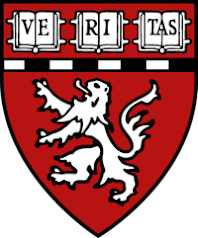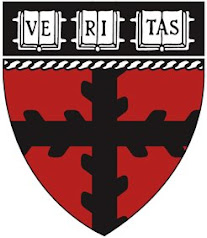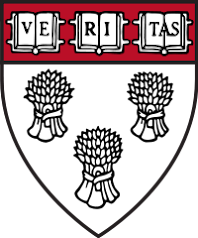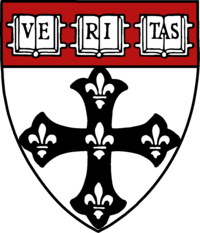Para Dosen dan Guru Ekonomi ASHU All Nobel Laureates in Economics
Written by Quantum Study Club on 10.42All Nobel Laureates in Economics
Economic governance: the organization of cooperation
Economic transactions take place not only in markets, but also within firms, associations, households, and agencies. Whereas economic theory has comprehensively illuminated the virtues and limitations of markets, it has traditionally paid less attention to other institutional arrangements. The research of Elinor Ostrom and Oliver Williamson demonstrates that economic analysis can shed light on most forms of social organization.
Elinor Ostrom has challenged the conventional wisdom that common property is poorly managed and should be either regulated by central authorities or privatized. Based on numerous studies of user-managed fish stocks, pastures, woods, lakes, and groundwater basins, Ostrom concludes that the outcomes are, more often than not, better than predicted by standard theories. She observes that resource users frequently develop sophisticated mechanisms for decision-making and rule enforcement to handle conflicts of interest, and she characterizes the rules that promote successful outcomes.
Oliver Williamson has argued that markets and hierarchical organizations, such as firms, represent alternative governance structures which differ in their approaches to resolving conflicts of interest. The drawback of markets is that they often entail haggling and disagreement. The drawback of firms is that authority, which mitigates contention, can be abused. Competitive markets work relatively well because buyers and sellers can turn to other trading partners in case of dissent. But when market competition is limited, firms are better suited for conflict resolution than markets. A key prediction of Williamson's theory, which has also been supported empirically, is therefore that the propensity of economic agents to conduct their transactions inside the boundaries of a firm increases along with the relationship-specific features of their assets.
www.cogs.indiana.edu/people/homepages/ostrom.html

Oliver E. Williamson, US citizen. Born in 1932 in Superior, WI, USA. Ph.D. in Economics in 1963 from Carnegie Mellon University, Pittsburgh, PA, USA. Edgar F. Kaiser Professor Emeritus of Business, Economics and Law and Professor of the Graduate School, both at the University of California, Berkeley, USA.
Professor of the Graduate School
Edgar F. Kaiser Professor Emeritus
of Business, Economics, and Law
Walter A. Haas School of Business
S545 Student Services Bldg. #1900
Berkeley, CA 94720-1900
Access:
Academic Articles
An interview with Oliver Williamson (real audio)
Oliver Williamson awarded H.C. Recktenwald Prize
Curriculum Vitae (doc)
Contact:
Phone: (510) 642-8697
Fax: (510) 642-4700
e-mail: owilliam@haas.berkeley.edu
Office Hours:
Thursdays 3-4pm
F434 Haas School of Business
Faculty Assistant:
John Bird
Phone: (510) 642-6471
e-mail: johnbird@haas.berkeley.edu
www2.haas.berkeley.edu/Faculty/williamson_oliver.aspx
- Paul Krugman
- Leonid Hurwicz, Eric S. Maskin, Roger B. Myerson
- Edmund S. Phelps
- Robert J. Aumann, Thomas C. Schelling
- Finn E. Kydland, Edward C. Prescott
- Robert F. Engle III, Clive W.J. Granger
- Daniel Kahneman, Vernon L. Smith
- George A. Akerlof, A. Michael Spence, Joseph E. Stiglitz
- James J. Heckman, Daniel L. McFadden
- Robert A. Mundell
- Amartya Sen
- Robert C. Merton, Myron S. Scholes
- James A. Mirrlees, William Vickrey
- Robert E. Lucas Jr.
- John C. Harsanyi, John F. Nash Jr., Reinhard Selten
- Robert W. Fogel, Douglass C. North
- Gary S. Becker
- Ronald H. Coase
- Harry M. Markowitz, Merton H. Miller, William F. Sharpe
- Trygve Haavelmo
- Maurice Allais
- Robert M. Solow
- James M. Buchanan Jr.
- Franco Modigliani
- Richard Stone
- Gerard Debreu
- George J. Stigler
- James Tobin
- Lawrence R. Klein
- Theodore W. Schultz, Sir Arthur Lewis
- Herbert A. Simon
- Bertil Ohlin, James E. Meade
- Milton Friedman
- Leonid Vitaliyevich Kantorovich, Tjalling C. Koopmans
- Gunnar Myrdal, Friedrich August von Hayek
- Wassily Leontief
- John R. Hicks, Kenneth J. Arrow
- Simon Kuznets
- Paul A. Samuelson
- Ragnar Frisch, Jan Tinbergen
 | Posted in »
| Posted in »



















0 comments: Responses to “ Para Dosen dan Guru Ekonomi ASHU All Nobel Laureates in Economics ”